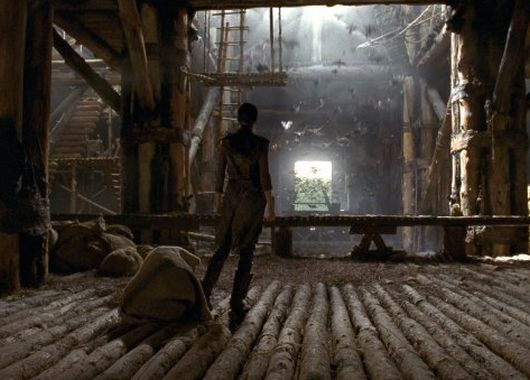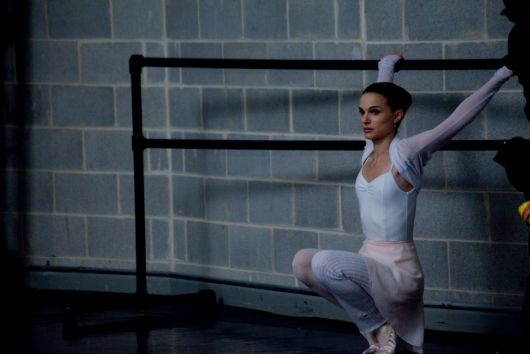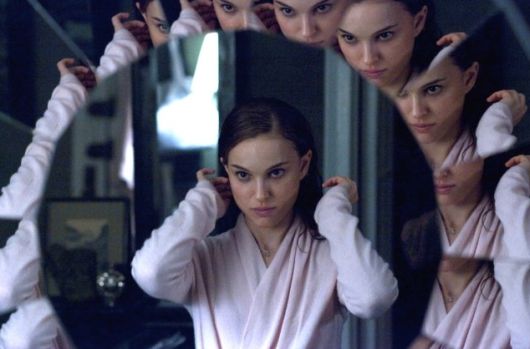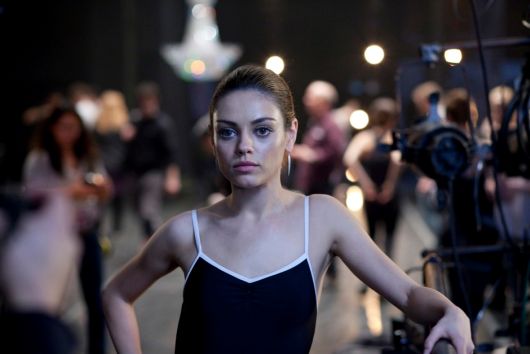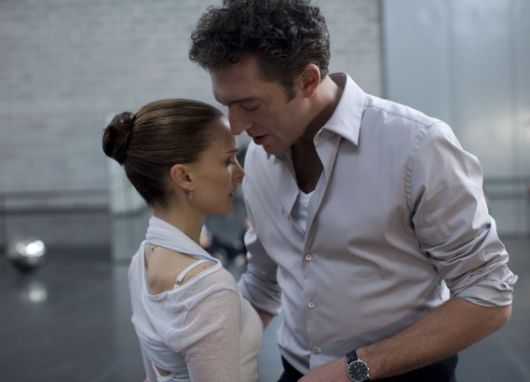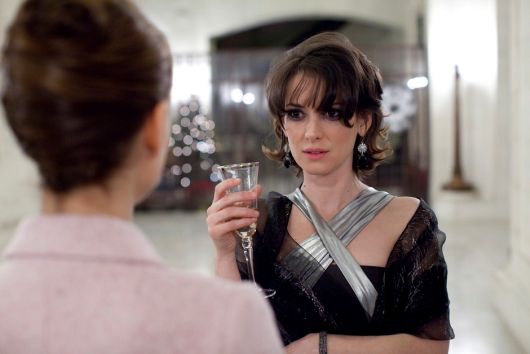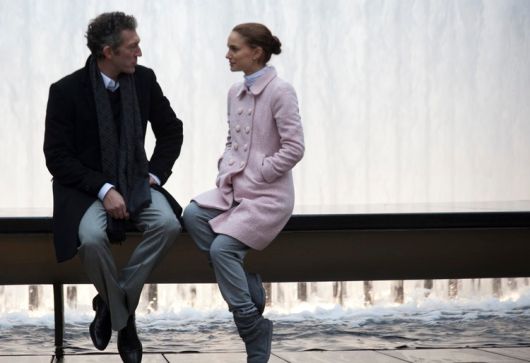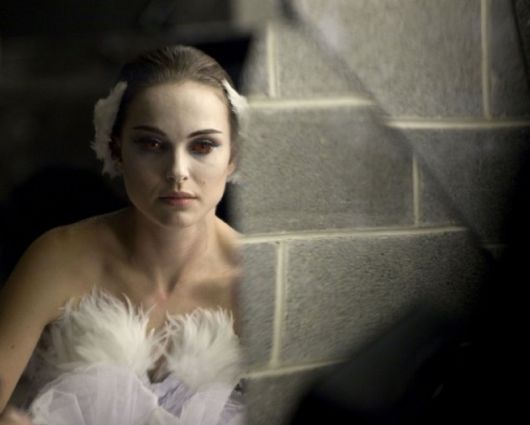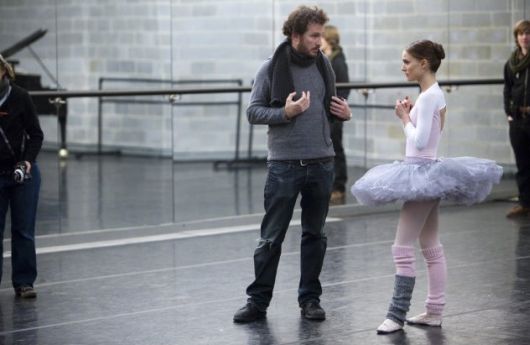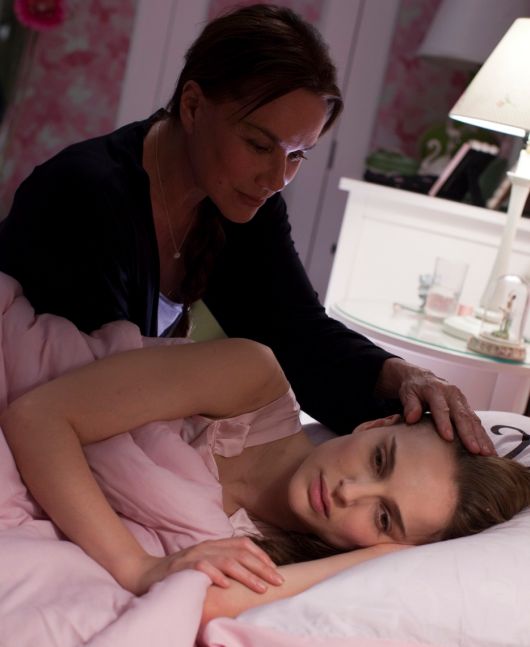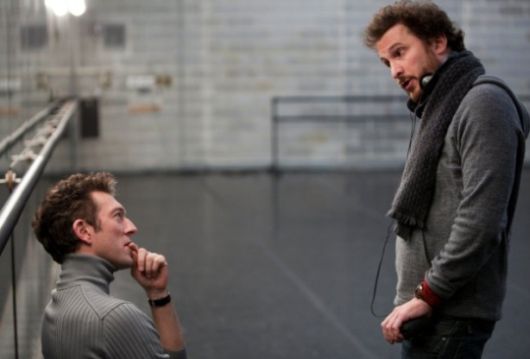 FILM
FILM In Which Nothing Can Ever Tell You How Bad Noah Is
 Monday, March 31, 2014 at 12:37PM
Monday, March 31, 2014 at 12:37PM 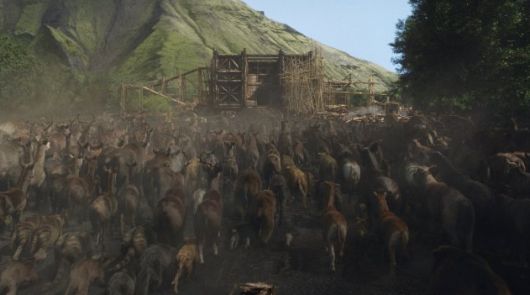
God Wants You To Cease Filmmaking
by DICK CHENEY
Noah
dir. Darren Aronofsky
A billion minutes
It feels like an eternity waiting for the only sex scene in Darren Aronofsky's Noah. It takes about ninety minutes into this mess for that to happen. In an instinctual move brought on by the realization that Anthony Hopkins has restored her ovaries, Emma Watson instructs her bf (Douglas Booth) to throw her a high hard one in the area every thinking person calls a hermione. He complies, and we wait for this transcendent moment humanity was denied for too long. Instead Aronofsky cuts away. An entire family sitting next to me whispered, "Goddamnit."
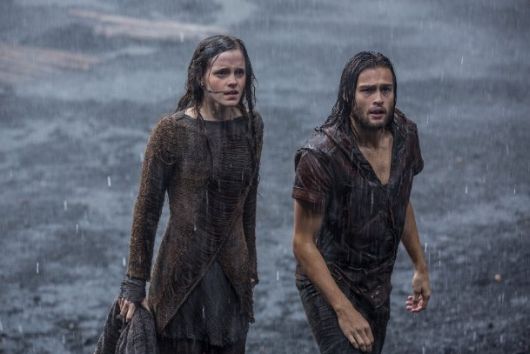 Emma clearly fired her hairstylist for calling her Granger too often, because this is completely unacceptable.
Emma clearly fired her hairstylist for calling her Granger too often, because this is completely unacceptable.
Noah (Russell Crowe) has been instructed by some vague dreams that the world is about to end. He goes to see his "grandfather" who drugs his son and later hits on his wife. Methusaleh (Anthony Hopkins) is the devil in disguise - for Christ's sake he is Lecter - and for good reason. He is the only performer in this utter disaster with the least bit of acting ability.
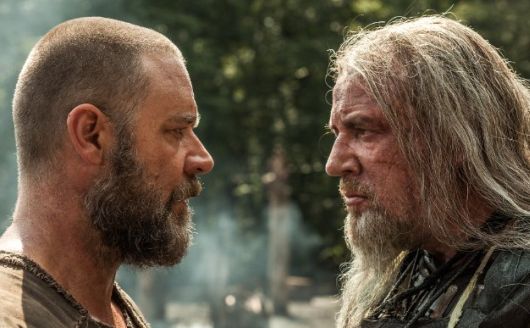 actually there was a kind of frosty sexual tension between RC and Ray Winstone, but it was never fully explored. Sequel? Jk.
actually there was a kind of frosty sexual tension between RC and Ray Winstone, but it was never fully explored. Sequel? Jk.
Lynne wanted to see Noah because she loves when two animals, two animals of the same species, are brought together in close quarters. I asked, hadn't she had enough of that?
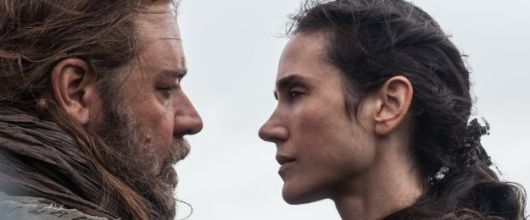 He can't stop thinking about how weird her ears are. He will never stop thinking about how weird her ears are.
He can't stop thinking about how weird her ears are. He will never stop thinking about how weird her ears are.
Noah's wife Naameh (a completely insane Jennifer Connelly), reprising her entire performance from the weirdly cold blooded roles she is forced by her agent to play, has had enough of this proximity to another person. So far, all her marriage to Noah has brought her is two mediocre sons and a tent in the desert. He never fucks her, not even on her birthday.
Connelly's Naameh has one completely bizarre scene where tears run down her face and around her mouth, making her look like some depraved ex-wife shown up at Noah's doorstep. You start to wonder why Noah is even in a relash, given that he never looks directly at Naameh the entire movie. When they finally reconcile later he resorts to a bro hug because he doesn't want his mouth to touch her gross tears.
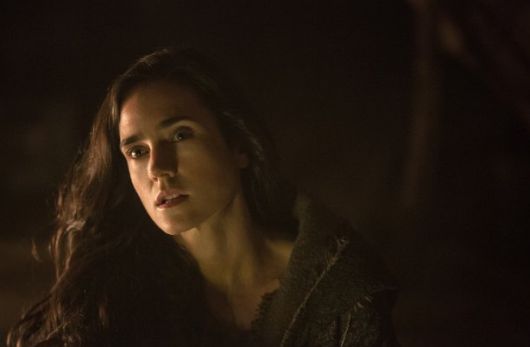 this is the mother of all retouched photos. Actually she looks like the wicked witch of the west tbh
this is the mother of all retouched photos. Actually she looks like the wicked witch of the west tbh
It is hard to know who to blame for this disaster. I could joke and say it was on God for making Aronofsky in the first place, but that would probably be a premature assumption. All of the director's screenwriting efforts have been complete fuck-ups, and in Noah, he even loses the visual éclat that brought him to prominence in the first place.
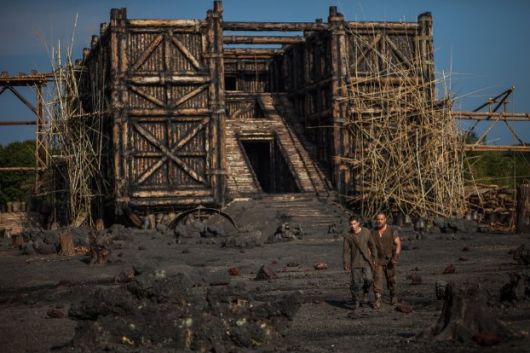 the people who cut down trees in Avatar were evil, here they are heroes. Missin u always James Cameron
the people who cut down trees in Avatar were evil, here they are heroes. Missin u always James Cameron
Instead of feeling like a surplus of excess, the visuals of Noah are highly dated. At times the CGI looks unprofessional, and the characteristic bestiary is never even viewed in its entirety. The animals have no personality, even as themselves. We never see them up close, just as a indeterminate mass. No one care for them. Lynne could only conclude that the makers of the production held some bias against any type of creature at all.
The ark itself is a massive disappointment, looking more like a sloppy 2x4 than a construct befitting the God who commissioned it. The only thing that would have made it worse is Frank Gehry.
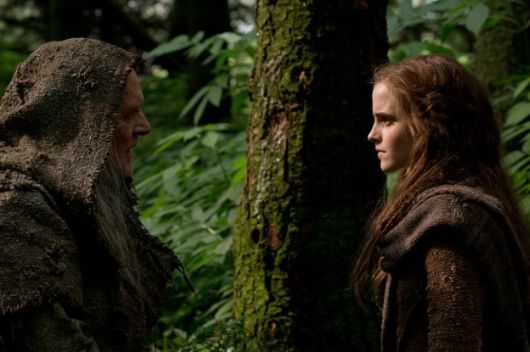 at least have them kiss with tongue. It's not too much to ask.
at least have them kiss with tongue. It's not too much to ask.
No scene in Noah is more than ninety seconds, lest we realize the complete clichéd absurdity of what is being communicated or said, or see how little there is to this entire thing. Aronofsky has never been the slightest bit skilled at subtlety — the individuals in his films rarely turn out to be anything other than what they are. As Ila, Watson herself never provides any kind of Eve-ian sexuality; in fact there are few roles in cinema she would seem more ill-suited for, given her mincing, sexy mouse-like appeal and flaccid Englishness.
For some reason Aronofsky figured it would be better to have everyone doing poor English accents, while allowing Crowe to just talk as he normally does, and Connelly to keep her own American whine. Noah is a linguist's nightmare, and it's also a completely racist festival that includes only whites. No one is even tan, though many are dirty.
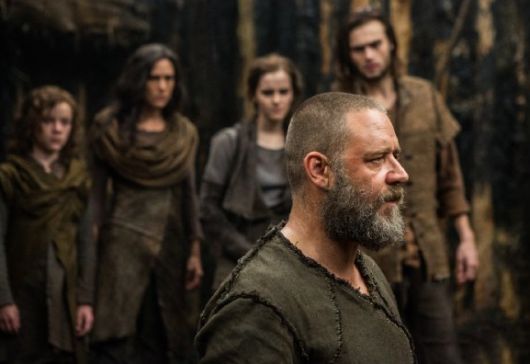 "Guys, there is this really mean blog post about our movie. Let's build another ark."
"Guys, there is this really mean blog post about our movie. Let's build another ark."
What is most missing from this piece of shit is wonder. The world ending and a boat floating across its flooded ruins is supposed to be at least partly enjoyable, the way that falling from a great height suggests a thrill we will remember for the rest of our life, no matter how much longer it may go on. There is no wonder to the animals or the places the ark goes, no delight even at finally reaching land — we suddenly cut to the entire group on a beach, without even seeing the discovery. At that moment, I felt like Tom Hanks when he found out Captain Phillips was utter bullshit — extremely upset and disappointed with myself for even witnessing this debacle.
I mean, I feel so fucking embarrassed for this shit (below). Emma has like five scenes in the movie, and 90 percent of her lines consist of telling someone her belly hurts:
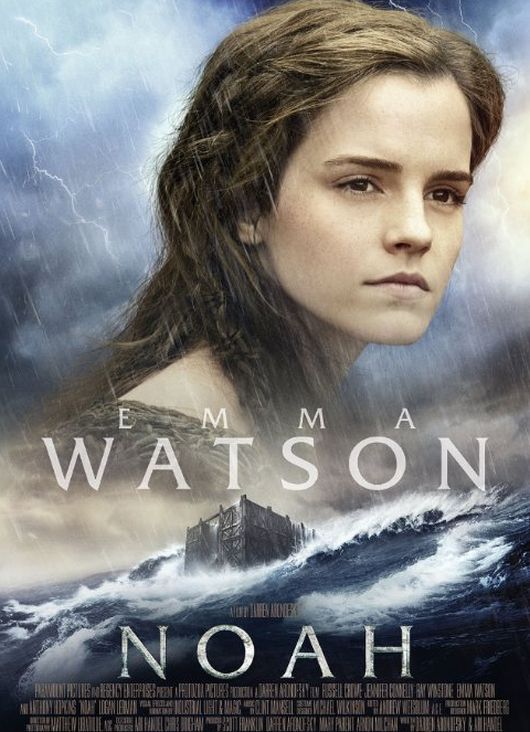 God will have his revenge on those responsible for these lies.
God will have his revenge on those responsible for these lies.
I mean yes, The Fountain was completely embarrassing and stupid, but it was just some revolting made up story, it didn't have actual things like drama and exciting moments that you expect from the story of Noah. At the very least Noah could have made a compass or done something besides send a really tired seagull out to find land for him. Deprived of all the things humans do in order to survive difficult situations, Crowe's Noah just growls a lot and tries to kill his grandchildren. It would be laughable if it was not so completely dull and boring. Throw in a swordfight, or cast Antonio Banderas as Jennifer Connelly's latin lover. Anything but this.
0/10
Dick Cheney is the senior contributor to This Recording. He is a writer living in an undisclosed location. You can find an archive of his writing on This Recording here.
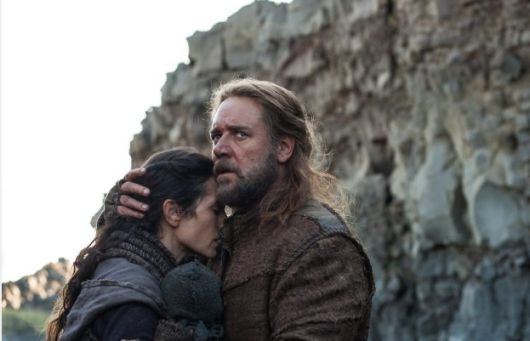 "Don't look at the metacritic Jennifer. You won't like what you see."
"Don't look at the metacritic Jennifer. You won't like what you see."
"Lonely Child" - Christina Perri (mp3)
"Sea of Lovers" - Christina Perri (mp3)
